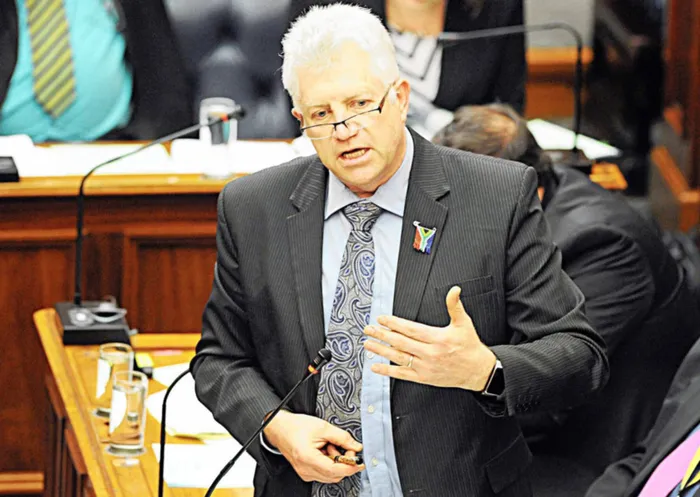
Western Cape Economic Opportunities MEC Alan Winde has called for streamlined systems such as e-visas, visas, and biometrics on arrival, if SA wants to prevent tourism numbers from dropping any further. File picture: David Ritchie Western Cape Economic Opportunities MEC Alan Winde has called for streamlined systems such as e-visas, visas, and biometrics on arrival, if SA wants to prevent tourism numbers from dropping any further. File picture: David Ritchie
Cape Town - Boosting trade and economic partnerships between the Western Cape and Angola is the key thrust of an official three-day visit to Luanda from Sunday by Premier Helen Zille and Economic Opportunities Minister Alan Winde.
The delegation, which left Cape Town on Sunday morning, includes senior officials and representatives of Wesgro, the province’s economic development agency.
The programme includes meetings with Angola’s minister of hotels and tourism, Pedro Mutinde, and of agriculture and rural development, Afonso Pedro Canga.
The initiative is in line with the province’s recently unveiled Khulisa Project, aimed at concentrating strategic planning on sectors most likely to deliver “inclusive growth” – economic growth, plus jobs – and making more of trade and investment in Africa.
Key sectors include tourism, oil and gas and agri-processing.
Angola, a significant a high-growth Atlantic coast economy in the southern African region, already has an important, and growing, trade relationship with the Western Cape.
Provincial exports to the former Portuguese colony, ranked as one of Africa’s fastest-growing regions, were valued at more than R2 billion in 2013, and have grown by 30 percent in the past year.
Winde said on Saturday that there were significant opportunities for the Western Cape and Angola to work together to increase trade and investment with a view to “unlocking growth and job-creation potential” in both regions.
“African countries are already our top importers for food and beverages,” he said.
“Going forward, consumption on the continent is set to increase dramatically, driven by rising GDP, growing middle classes and urbanisation.”
Winde noted that, with the current oil slump, Angola was “seeking opportunities to diversify its economy, especially in tourism and agriculture”.
“We know that Africa has the world’s most arable land and we need to make sure Africans lead the way forward. To this end, agri-processing has been selected a high priority sector for the Western Cape. There are some types of produce which will thrive in the Angolan climate and we will be exploring partnership agreements between agri-businesses in the two regions.”
The delegation will also explore opportunities to further develop tourism co-operation, a fast-growing sector in both regions. Arrivals from Angola to the Western Cape increased by 67 percent between 2009 and 2013.
Winde said increased air access was central to increasing business and leisure tourism. The province’s department of economic development and tourism was developing an implementation plan for increased air access.
“The aim of the air access strategy is to improve our competitiveness and we are focusing on routes into Africa. Research shows a direct link between economic growth and improved air access.
“Currently, there are only three direct flights between Cape Town and Luanda each week. We want to increase that frequency to between five and seven flights per week.”
Weekend Argus